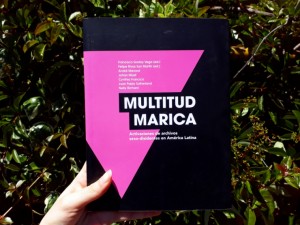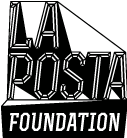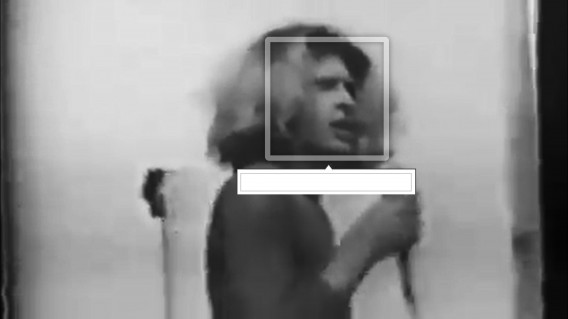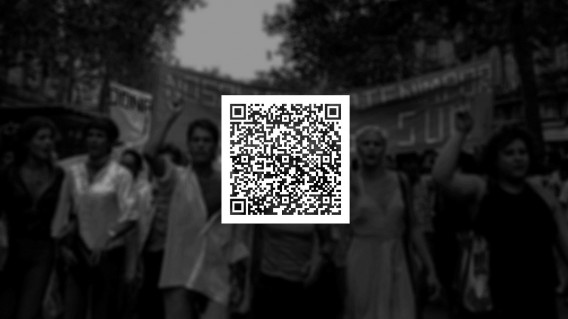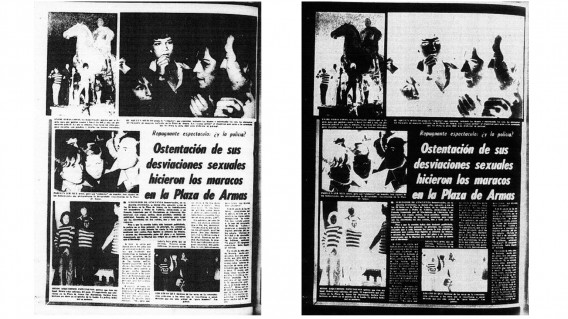On the occasion of the 50th anniversary of the revolt of the Stonewall Inn in the Greenwich Village of New York, which took place on June 28, 1969 and in later days, giving rise to the Gay Pride, La Posta Foundation has the honor of presenting “Techno-Baroque Protest” by the Chilean artist Felipe Rivas San Martín.
“Techno-baroque protest” addresses 3 inaugural manifestations of sexual dissidence activism in Europe, the United States and Latin America: the Stonewall revolt (USA, 1969), the homosexual manifestation of the Plaza de Armas (Santiago de Chile, 1973) and the march by the Ramblas of Barcelona (Spain, 1977).
From the journalistic, photographic and audiovisual archives of those episodes, which occurred four or five decades ago, Rivas proposes a “techno-baroque” video installation that intervenes and activates those archives in the present. This “activation of archives” of sexual dissidence constitutes a political-affective approach to these archives and at the same time proposes to differentiate between “route” and “movement” of sexual politics, recovering confrontation and antagonism in a present marked by the dispute of memory and the neoliberalization of LGBT culture.
NOTE: the concept “techno-baroque” comes from the updating of pictorial practice developed in the Kingdom of Chile before independence, strongly influenced by the Cusco school of Baroque influence, one of its most striking features is, according to the words of Wikipedia: “As for the technical treatment, there is a misunderstanding of the perspective added to a fragmentation of the space in several concurrent spaces or compartmentalized scenes”” [from the entrance “Cusco School”]. At present, that same characteristic would be the effect produced by the multiplication of windows on the computer screen showing different images.
BIO
Felipe Rivas San Martín is a visual artist and activist of the Sexual Dissidence. Master of Visual Arts at the University of Chile. He currently lives and works in Valencia, Spain, where he holds a Doctorate in Art from the Polytechnic University of Valencia, as a fellow of the National Commission of Scientific and Technological Research, CONICYT. It links artistic production and activism with research, writing and curatorship, in matters relating to image, politics and technologies, queer theory, post-feminism, performativity.
It develops an in-disciplinary production relating painting, drawing, performance, video, through the technological image (virtual interfaces, QR codes, facial recognition, etc.). He has participated in collective art exhibitions in Chile, Argentina, Germany, Spain, Peru, Colombia, the United States, Ecuador, Mexico, Switzerland, Uruguay, Serbia, Nicaragua and France.
In 2002 he founded the University Collective of Sexual Dissidence, CUDS, a Latin American group of activism, artistic experimentation and critical reflection. He was director and editor of the queer magazines “Torcida” (2005) and Disidenciasexual.cl (2009). He is coeditor (along with Francisco Godoy Vega) of the book Multitud Marica (2018) and author of the book Internet, mon amour: infections queer/cuir between digital and material, coming soon in Écfrasis Ediciones (2019).
